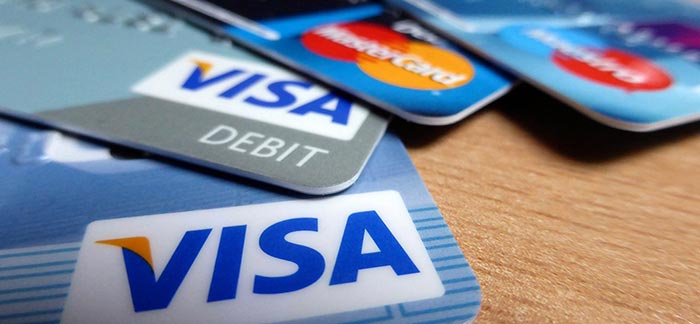In this economy, using your credit score to make big purchases is practically inevitable. You might be able to get away with bringing a duffel bag full of cash to a car shop and driving away with a new ride, but odds are that you’ll own a house at some point, and those don’t come cheap.
In order to be approved for a large purchase, the loan provider needs to check your credit score, which is calculated using credit scores from the three primary credit reporting agencies, Equifax, Experian, and Transunion. That score will often determine the interest rate of the loan, how much you’re required to pay upfront, or even whether they’ll extend a loan to you at all.
Take, for example, an FHA loan for buying a house. According to the FHA, if your credit score is over 580, you qualify for the a lower down payment, which means that you only need to put down 3.5% of the total cost of the home upfront. If your score is lower than 580, you’ll need to have 10% of the cost of the home up front, which can end up being pretty expensive, even before interest kicks in.
Since keeping your credit score healthy can get you better deals on some of the biggest purchases you’ll ever make, we’ve got a few tips for how to best track and manage your credit score to make sure that you’re in great shape when the time comes.
Keep an Eye on Your Balance
Making sure that the balance that your credit card has access to is well managed is crucial for keeping your score high. Depending on the percentage of your available credit that you’re actually using, your score will actually increase or decrease – spending less of your available credit means you’re likely to be financially responsible with purchases in the future. A good rule of thumb is to keep your used credit at about 30% of what you have available.
Keep Fewer Active Accounts
Rather than having small charges on several different credit cards, it’s better for your credit score (and easier to manage) to pay off most cards and have one to three go-to cards that you use for everything. This is because the number of cards that you are actively using credit from is reflected in your score. By getting small-time charges off of the cards you rarely use, your credit record becomes a whole lot more manageable.
See what you’d pay for life insurance
Look Out for “Good Debt”
Believe it or not, having previous debt on your credit record can actually be a good thing. If you made a large purchase which gave you debt for a while, and you paid it all off on schedule, it actually counts as a positive for your credit report, since it shows that you had the fiscal responsibility to manage your income properly and make your payments on time. Successful debt management is a crucial component of a credit score, and many banks look for previous experience handling heavy financial burdens to make sure you’re up to the challenge.
Many people like to get successfully repaid debt off of their credit report as soon as possible, since they believe that any debt from their past will hurt them in the long run. But scrubbing this “Good Debt” from your credit report erases all of the evidence of your hard work and the proof that you’ve overcome financial hurdles successfully in the past.
Pay Like Clockwork
Making sure that you’re paying your bills on time is one of the most influential parts of your credit score. Keep track of your payment due dates on your calendar, and set monthly reminders if you don’t have automatic payments set up. Consistency and trustworthiness are much more important to the credit company than simply paying everything off.
Check In Regularly
It’s always a good idea to keep tabs on your credit scores, but there’s no reason to go overboard. You’re allowed to get one copy of each of your three credit scores for free every year in order to keep tabs on your financial fitness.
It’s tempting to check in on all three of them at once every year can work to keep yourself informed, but since your scores for all three major credit reporting companies is often very similar, spacing out your requests can give you a better point of view. Many financial consultants suggest that you request one report every four months to get more regular information about your finances – rather than getting all of the information at once, it’s spaced out evenly throughout the year.
Putting it Together
Now, even if you put all of these tips into action immediately, your credit score won’t shoot up to 850 overnight – in financial security, as in many other things, slow and steady wins the race. Your credit score takes into account all of your past payments, debts, and credit charges, so a change in your habits is going to take a while to have a noticeable effect. However, every journey begins with a single step, and by following these tips you should be able to raise your credit score bit by bit.


0 Comments